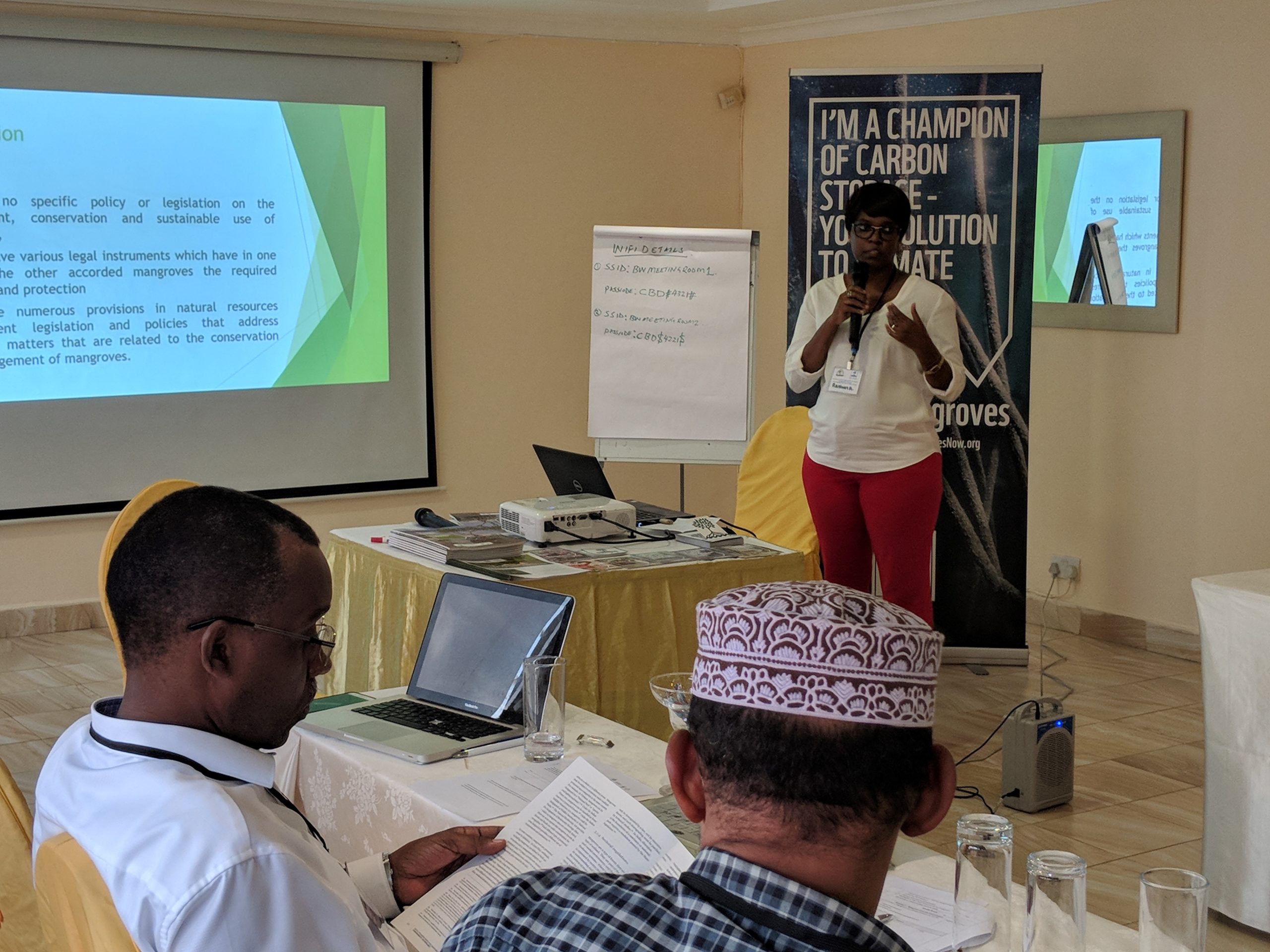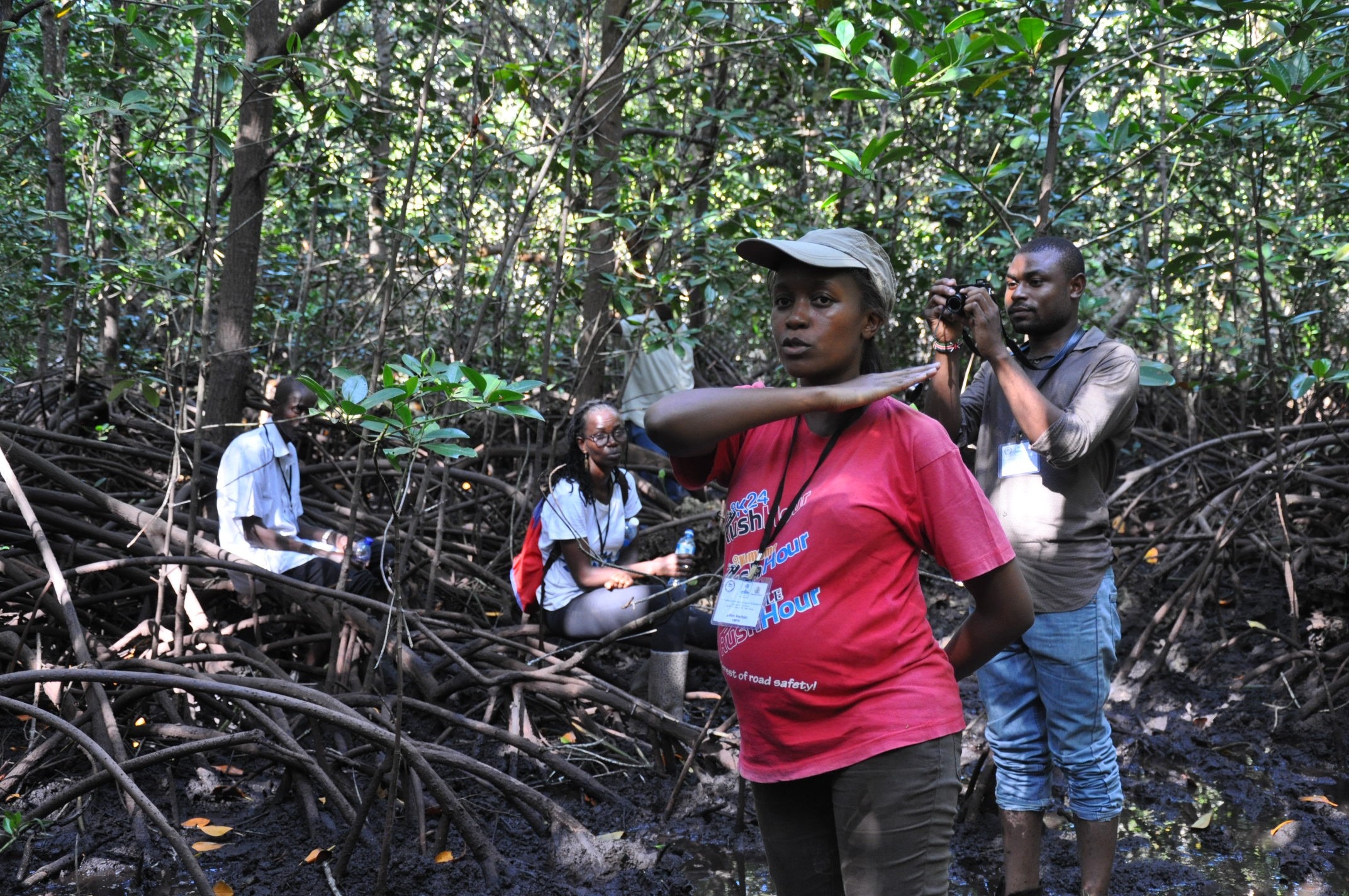Inspiring, equipping and empowering stakeholders to Save Our Mangroves Now!
Workshops to enhance legal capacity for mangrove management in Kenya, Tanzania, Mozambique and Madagascar
Save Our Mangroves Now! has hosted workshops in the Western Indian Ocean (WIO) region to build understanding of legal frameworks and challenges for mangrove conservation
In Kenya, Tanzania, Mozambique and Madagascar, conservation and sustainable use of mangrove ecosystems is matter of survival. Thousands of local communities directly rely on mangrove resources for subsistence as well as fuel, construction, and income. Mangrove ecosystems also have the potential to mitigate the destructive power of the cyclones that ravage the coast, a role which has come into focus since the recent devastation caused by Kenneth and Idai.
Protection of these key ecosystems is ineffective and inadequate. Legal tools, such as protected area frameworks, environmental impact assessment requirements, and coastal development rules exist, but are not being employed or enforced well enough to stem the destruction of mangroves. Confusion over tenure and rights contribute to mismanagement and undermine sustainable practices of local communities. A global study of national governance for mangrove management developed in the framework of Save Our Mangroves Now! found that in many cases adequate legislation already exists, but is not implemented due to lack of resources, coordination, and capacity.
Acknowledging this situation, the Save Our Mangroves Now! initiative hosted a series of workshops with local partners to raise awareness and enhance the legal capacity for mangrove conservation and management in the Western Indian Ocean region. Funded by the German Federal Ministry for Economic Cooperation and Development and jointly implemented by WWF Germany and IUCN, these workshops facilitated dialogue and understanding to improve use of legal tools in the WIO region.

Save Our Mangroves Now! workshop in east Africa. © Lydia Slobodian
The workshops brought together legal experts and field-based practitioners from a mix of government, civil society and private sector backgrounds as well as community members and business owners to share perspectives on mangrove conservation challenges, build understanding of available legal tools for conservation, and foster discussion on how to improve the legal frameworks for conservation and sustainable use of mangrove ecosystems.
Through partnerships with local universities and research institutes, the workshops provided an overview of legal and institutional frameworks in place, and field visits to learn about mangroves in the area. Participants could see firsthand the threats and pressures they face, and meet local communities undertaking conservation projects. They also had the opportunity to engage in group activities and training exercises, alongside active discussions of challenges and gaps in mangrove conservation and management.
Workshops by country
The outcomes of these workshops take the form of recommendations for policy making and institutional processes, the creation of networks to monitor these outcomes and further work on improving mangrove governance and enhancing legal capacity in each country.
The workshop results will be analysed to better shape and build the activities to be undertaken in order to achieve a zero net mangrove loss in the WIO region.
Workshop reports are available for Kenya, Tanzania, Mozambique and Madagascar. For more information, contact Léa Badoz, Legal Research and Technical Assistant at IUCN.

Workshop participants learned from women leading mangrove tourism in Kenya. © Anouk Neuhaus